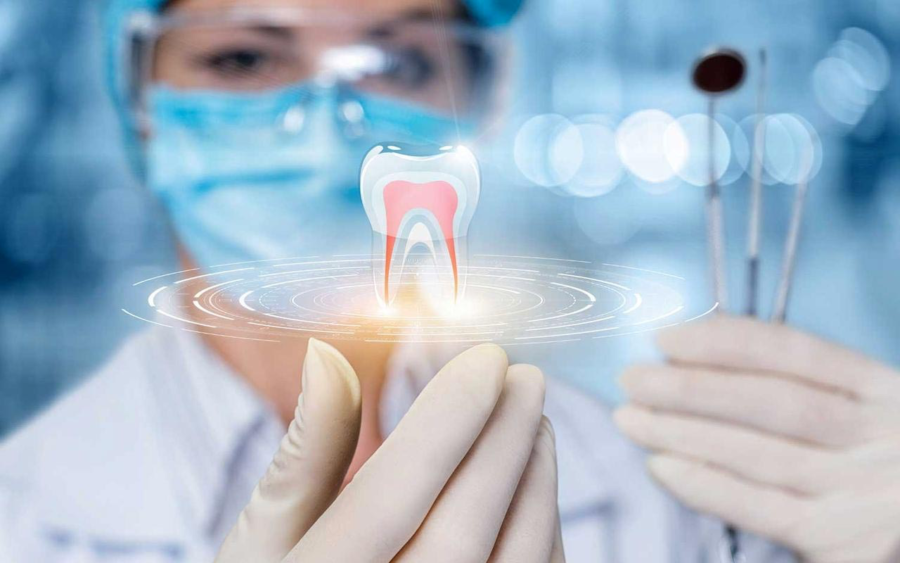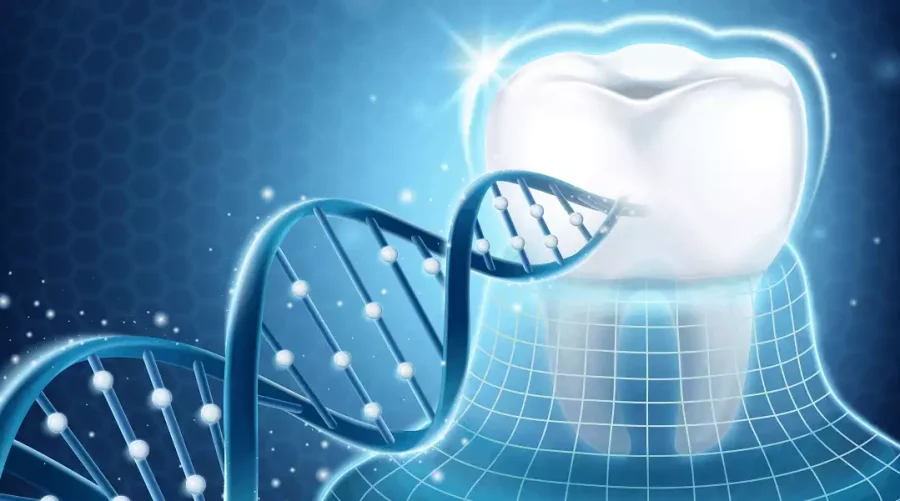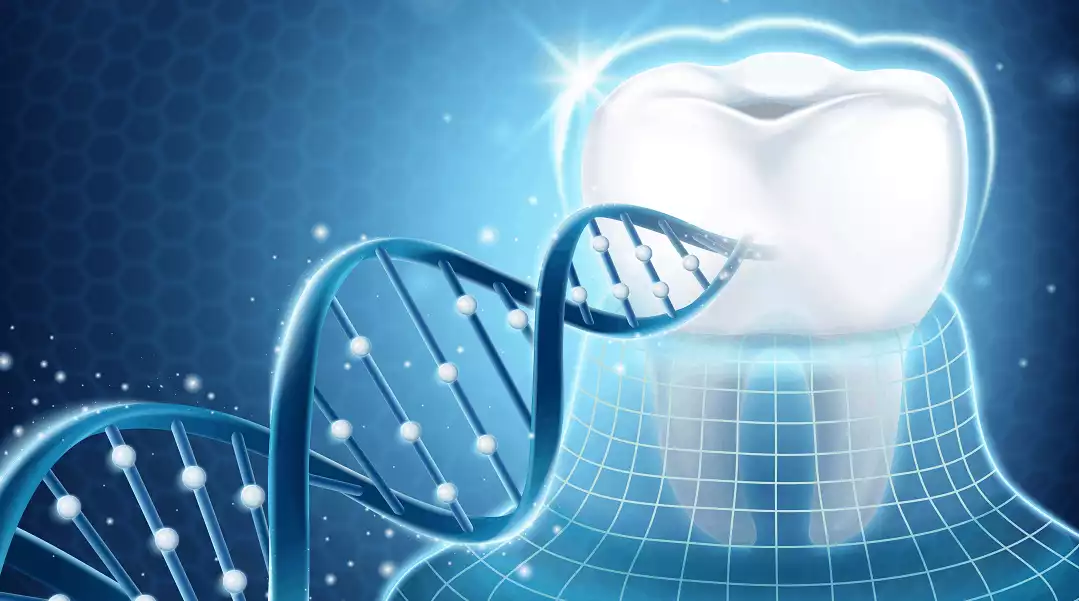Discovering the underlying factors that contribute to dental health has always been a matter of interest for both researchers and individuals. In this informative and enlightening article, we delve into the genetics of dental health with the esteemed Dr. Chirag Chamria. As a renowned expert, Dr. Chamria unpacks the science behind strong smiles and sheds light on the role genetics play in dental wellness. Understanding the genetic connection opens up a realm of possibilities for personalized dental care and treatment. By identifying genetic markers, we can better comprehend individuals’ susceptibility to oral conditions to prevent and plan treatments. From cavities to gum disease, genetics can influence our dental fate to a significant extent.
Understanding the Role of Genetics in Dental Health
Dental health is a complex interplay of various factors, and genetics is one of the key contributors. Our genetic makeup plays a crucial role in determining the strength and resilience of our teeth and gums. While oral hygiene practices such as brushing and flossing are essential, they do not solely determine the state of our dental health. Our genes act as a blueprint, that influence development of our teeth as well as our susceptibility to certain oral conditions.

Research has shown that genetic factors can influence the risk of dental problems, including tooth decay, gum disease, and even malocclusion. Some individuals may have a genetic predisposition to weaker enamel, making them more susceptible to cavities. Others may have inherited a higher risk of gum inflammation, leading to a higher chance of developing periodontal disease. Understanding these genetic factors can help individuals take proactive steps to prevent and manage these conditions.
It’s important to note that genetics is not the sole determinant of dental health. Environmental factors, such as diet and oral hygiene habits, also play a significant role. However, by understanding the genetic component, we can gain deeper understanding of our oral health profile.
Common Genetic factors that affect Dental Health
Tooth Structure and Shape: Genetic factors can determine the size, shape, and structure of your teeth. For example, genes can influence whether you have naturally straight teeth or if you are more likely to develop crowding, spacing, or misalignment issues.
Enamel Strength: Some individuals may inherit genes that result in strong enamel, while others may have genetic predispositions to enamel defects. This can make their teeth more susceptible to cavities and erosion.
Taste Preferences: Genetic variations can affect your taste preferences, including your preference for sweet or sugary foods. People with a genetic preference for sugary foods may be more inclined to consume diets that increase the risk of tooth decay.
Tooth Sensitivity: Genetic factors can contribute to tooth sensitivity. Some people may inherit genes that make their teeth more sensitive to temperature changes, acidic foods, or sweets.
Jaw Structure: Genetic factors can influence the development and structure of the jaw and facial bones. Variations in jaw structure can contribute to issues like malocclusion and the need for orthodontic treatment.
Genetic Disorders and its Impact on Dental Health
Amelogenesis imperfecta (AI): AI is a genetic disorder that affects the development of tooth enamel. Individuals with AI often have enamel that is thin, discolored, and prone to chipping or breaking. This condition can result in increased tooth sensitivity and a higher risk of dental decay.
Dentinogenetic Imperfecta (DI): DI is another genetic disorder that affects the teeth. It results in the abnormal development of dentin, the layer beneath enamel, leading to teeth that are translucent, weak, and prone to breakage. Dental crowns or other restorative procedures are often necessary to manage DI.
Ectodermal Dysplasia: Ectodermal dysplasia is a group of genetic conditions that affect the development of various ectodermal structures, including teeth, hair, and sweat glands. Individuals with ectodermal dysplasia may have missing teeth, abnormally shaped teeth, and underdeveloped sweat glands in the mouth, which can lead to dry mouth and dental issues.
Down syndrome: Down syndrome is a genetic disorder caused by an extra chromosome 21. People with Down syndrome often have specific dental characteristics, such as small and widely spaced teeth, and they may be more prone to gum disease, dental crowding, and developmental issues.
Genetic Testing for Dental Health
Advancements in genetic testing have opened up new possibilities for understanding and managing dental health. Genetic testing can provide valuable insights into an individual’s genetic predispositions and susceptibility to various oral conditions. By analyzing specific genetic markers, it is possible to identify potential risks and develop personalized prevention and treatment plans.
Genetic testing for dental health typically involves a simple saliva or blood sample. The sample is then analyzed in a laboratory to identify relevant genetic variations. The results are interpreted by dental professionals and genetic counselors, who can provide guidance on preventive measures, treatment options, and lifestyle modifications.

It’s essential to approach genetic testing for dental health with a comprehensive understanding of its benefits and limitations. While genetic testing can provide valuable insights, it does not provide a definitive prediction of future oral health. Dental health is influenced by a combination of genetic and environmental factors, and genetic testing is just one piece of the puzzle. It is crucial to work with dental professionals to interpret the results and develop a holistic approach to dental care.
Future of Genetic Research in Dental Health
As our understanding of genetics continues to evolve, so does our ability to leverage this knowledge for improved dental health. Ongoing research in the field of dental genetics holds promise for personalized preventive and treatment strategies. By identifying specific genetic variations associated with oral health, researchers aim to develop targeted interventions that address individual needs.
One area of focus in genetic research is the development of preventive measures to reduce the risk of common dental problems. By identifying genetic markers associated with susceptibility to cavities or gum disease, researchers can develop targeted interventions. These interventions may include personalized oral hygiene recommendations, dietary modifications, or even the development of new dental products that target specific genetic vulnerabilities.
Another exciting avenue of research is regenerative dentistry. Scientists are exploring how genetic factors can influence the regeneration and repair of dental tissues. By understanding the genetic mechanisms involved, researchers hope to develop novel therapies that promote tooth regeneration and repair, potentially revolutionizing the field of restorative dentistry.
While these advancements are still in their early stages, they hold immense potential for improving oral health outcomes. By combining genetic research with other emerging technologies, such as 3D printing and precision medicine, the future of dental care looks increasingly personalized and effective.
Tips for Maintaining Good Dental Health
While genetics play a role in dental health, it’s important to remember that they are not the sole determinants. Regardless of genetic predispositions, there are several steps individuals can take to maintain good oral health:

Practice good oral hygiene: Brushing twice a day, flossing daily, and using mouthwash can help remove plaque and prevent tooth decay and gum disease.
Eat a balanced diet: A diet rich in fruits, vegetables, and whole grains provides essential nutrients for strong teeth and gums.


Limit sugary and acidic foods: Sugary and acidic foods can contribute to tooth decay and enamel erosion. It’s important to consume these in moderation and practice good oral hygiene afterward.
Avoid tobacco and excessive alcohol consumption: Both tobacco and excessive alcohol consumption can have detrimental effects on oral health, including an increased risk of gum disease and oral cancer.

Dr. Chirag Chamria on Genetics of Dental Health
To gain further insights into the role of genetics in dental health, we had the privilege of interviewing Dr. Chirag Chamria, practicing at Royal Dental Clinics. Dr. Chamria is a Certified Oral and Maxillofacial Surgeon with extensive training in zygomatic implants, cosmetic dentistry, orthognathic surgery, full mouth, and oral cancer rehabilitation.
During the interview, Dr. Chamria highlighted the significance of genetics in understanding and improving dental health. He emphasized that while genetics play a role, they should not be viewed as a deterministic factor. Environmental factors and lifestyle choices also contribute significantly to oral health outcomes.
Dr. Chamria discussed the current advancements in genetic research and their potential impact on dental care. He highlighted the importance of personalized approaches to dental health, taking into account an individual’s genetic makeup and unique risk factors. By tailoring prevention and treatment plans, dental professionals can provide more effective and targeted care.
The interview also touched upon the future of dental genetics and the exciting possibilities it holds. Dr. Chamria expressed optimism about the potential for genetic research to revolutionize dental care, leading to personalized treatments and improved outcomes.
Conclusion
Genetics play a vital role in dental health. Our genetic makeup influences various aspects of our oral health, from the development and structure of our teeth to our susceptibility to dental problems. Understanding the genetic component opens up new possibilities for personalized dental care and treatment. While genetics are influential, they are not the sole determinants of dental health. Environmental factors and lifestyle choices also play a significant role. Dr. Chirag Chamria’s expertise and insights have shed valuable light on the role of genetics in dental health. Armed with this knowledge, individuals can make well-informed decisions regarding their dental care.
© All rights reserved by Royal Dental Implants Pvt Ltd
Issued in public interest






